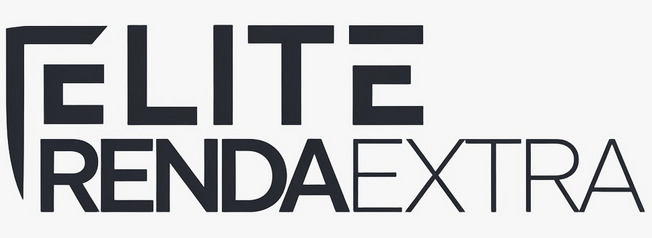We Work Remotely Extra Income is a guide for those wanting to earn online or from home. It showcases more than 1,000 new remote jobs every month. But, the competition for these jobs is tough.
Since 2011, We Work Remotely has shared over 20,000 job listings. It attracts job seekers worldwide. Knowing how to apply smartly can help you stand out. This could lead to jobs that offer both money and happiness.
Start by making yourself known online. Follow companies you admire and organize your job hunt well. Learning how to follow up after applying is also key. Wait about two weeks before checking in. Use alerts from We Work Remotely to find jobs that match your skills and time zone.
Be careful as you search for remote work. The number of remote jobs is rising, with forecasts saying 22% of Americans will work remotely by 2025. Yet, some listings might not be real. Look for jobs with clear descriptions and beware of those that seem too good to be true. Sites like Indeed and Glassdoor help, but remote-focused sites like We Work Remotely and FlexJobs are best. They check postings carefully.
Show off your remote-friendly skills if you have them. Skills like good communication, managing your time, and working independently are valuable. They could help you get a remote job anywhere. With these tips from We Work Remotely, you can find a job that lets you succeed from any location.
Understanding the Remote Job Landscape
The way we work remotely has changed a lot, thanks to key trends and facts. More people now want to earn money online and do freelance work from anywhere. It’s important to get what’s happening in this area.
The Rise of Remote Work
Remote work used to be less common, but it has grown a lot. This is partly because of the pandemic. This change seems to be sticking around, changing how we think about work.
Many companies, particularly in tech, marketing, and customer service, are now working remotely. Big companies like GitLab and Automattic are fully remote. This shows that working from home is doable and can last.
Benefits of Remote Employment
People working from home are usually happier and get more done. They save an average of 54 minutes every day by not commuting. This makes their lives better, cuts down on stress, and saves them about $4,000 each year.
Remote work also gives people more control and flexibility. This means they can make extra money online while still keeping up with their personal lives.
Common Remote Job Types
The number of remote jobs is going up, and there are a lot of different kinds now. This includes jobs like technical support, content creation, and marketing. Lots of people, including those changing careers or wanting more experience, find these jobs attractive.
- Customer Service and Technical Support
- Data Analysis and Data Entry
- Content Creation and Digital Marketing
- Software Development and Graphic Design
Companies want workers who are good at their jobs but also great at organizing and talking to others. These skills are really important for remote work. The competition and chances to get a remote job are increasing.
Crafting Your Resume for Remote Roles
As more companies adopt or start with remote teams, tailoring your resume for such roles can boost your job market presence. This guide will show you how to craft your resume to attract hiring managers seeking talented remote workers.
Highlighting Relevant Skills
In the remote job scene, showcasing certain skills on your resume is key. Skills like communication, self-motivation, and tech know-how are crucial for remote success. According to employers, these skills are needed by 93% of remote workers. Plus, displaying your knowledge of tools like Zoom, Slack, or Trello can make you stand out.
Tailoring Your Experience
Adjusting your resume for remote work adds great value. Highlight past remote work or projects you’ve managed from a distance. Mention specific results, such as leading a remote team that boosted company income by 25% with smart project management. This will catch the eye of managers seeking remote workers.
Formatting for Remote Hiring
Since most companies screen resumes with Applicant Tracking Systems, you need a resume that can get past these systems. Include a summary of your remote work skills at the top. Your resume should be easy to read and no longer than two pages.
Check out the stats below to know what hiring managers look for in remote resumes:
| Statistical Insight | Impact on Resume Building |
|---|---|
| 94% of recruiters look for strong communication skills | Highlight communication tools usage and related achievements |
| Customized resumes see a 60% better visibility in ATS | Use JobScan or similar tools to tailor your resume for each application |
| Remote skills section can boost interview chances by 40% | Include a separate section titled “Remote Work Competencies” |
| 70% of remote jobs filled through networking | Engage actively with online professional communities |
| 50% higher response rate to resumes with explicit remote expertise | Clearly state any remote work training or certifications |
This tailored strategy will help you stand out and improve your chances of landing remote roles and additional online opportunities.
Writing an Engaging Cover Letter
An engaging cover letter can make you stand out when applying for remote job opportunities. It’s your chance to highlight your skills. Plus, share your excitement and how the job fits your career plans, like work remotely for supplemental income.
Addressing the Right Person
Personalization is key in cover letters. It shows you’ve researched and really want the job. Reports say that personalized greetings grab recruiters’ attention. Try to find the hiring manager’s name to personalize your greeting. This can make a great first impression.
Demonstrating Your Remote Work Skills
Remote jobs need skills for good communication and productivity from anywhere. Talk about how you’re great with tools like Microsoft Office and Zoom. For example, mention leading a team across different places to finish projects on time 98% of the time. Sharing these successes shows you can handle remote work’s demands.
Showcasing Your Motivation
Your cover letter should add life to your resume’s bullet points. Explain why you’re excited to work remotely for supplemental income and your career goals. Share stories of your drive leading to success, like improving company revenue by 15% through new processes.
Use your cover letter to show you’re the right person for the job. It’s a chance to talk about your skills and why you’re interested in the role. Make your application memorable amidst many other candidates.
Utilizing the Right Job Boards
As remote work becomes more popular, picking the right job boards is vital for success. These platforms connect you to freelance opportunities and provide tools to grow your remote career.
Popular Platforms for Finding Remote Work
Websites like We Work Remotely, Remote OK, and Virtual Vocations are growing fast. They offer jobs in many areas. We Work Remotely is great for those looking for freelance or full-time work. It’s easy to use and has lots of job types, from coding to customer help.
Tips for Using We Work Remotely
Get the most out of We Work Remotely by keeping your profile up-to-date. Make sure your resume highlights skills needed for remote work. Also, being active in the platform’s community can make you more visible and help you find freelance jobs from anywhere.
Niche Job Boards to Consider
Checking out job boards for specific industries is smart. For instance, PowerToFly is great for women in tech looking for remote jobs. EuropeRemotely is good for those in European time zones.
| Job Title | Average Hourly Pay | Relevant Job Board |
|---|---|---|
| Video Editor | $22.79 | We Work Remotely |
| Graphic Designer | $20.63 | Remote OK |
| Curriculum Writer | $33.51 | PowerToFly |
| Medical Coder | $21.65 | Virtual Vocations |
Using job boards that fit your skills and goals can help you find more remote work. This strategy is key for doing well in the freelance world.
Preparing for Remote Interviews
Getting ready for remote interviews is key to show you’re qualified. It’s also your chance to prove you’re ready for remote jobs to earn extra money. These interviews focus on your setup for online work, how well you communicate, and managing work from home.
Technical Preparation Tips
Before the interview, know how to use video tools like Zoom or Skype. A huge 75% of companies now interview this way. Check your mic, webcam, and internet to dodge the tech issues that 39% face. Choose a quiet, bright spot that looks professional. This matters to 60% of recruiters.
Questions to Expect
Be ready to talk about meeting deadlines, staying in touch, and working with others. With 85% of companies praising remote work’s efficiency, explain how you stay on track alone—a skill for 40%. Share your remote work history too. It’s crucial for 65% of hiring managers.
How to Showcase Remote Readiness
Tell them about your plan for daily discipline and productivity. This is key, as 75% of remote hopefuls stress routine’s importance. Highlight how well you communicate, very important to 85% of recruiters. Be enthusiastic about remote work chances and share any past experience. Candidates with remote experience are 50% more likely to get hired.
Prepare to do more than just answer questions. Show them you’re fully ready and excited for remote work to make extra money. This sets you apart as the best candidate for online earnings.
Managing Your Online Presence
Nowadays, more people want to earn extra money online or start a side job from home. This makes online presence very important. How you appear on the internet can greatly change your chances to find good jobs or freelance work.
Utilizing LinkedIn for Job Hunting
LinkedIn is key for those seeking jobs, especially remote work. Aim your profile at showing off skills for remote jobs to get recruiters’ notice. Keep your profile current, highlighting your digital income skills.
The Power of a Personal Brand
A strong personal brand sets you apart online. It should show you’re professional and ready for remote work that needs self-drive, perfect for a home side job. Your brand isn’t just for LinkedIn. Use other platforms to show your personality and skills. This boosts your chances and visibility.
Maintaining Professionalism on Social Media
Now, employers or clients will look at your social media. They’re checking if you’re right for remote work. You must be professional on all social media. This shows you’re trustworthy and can handle remote jobs well.
Your online presence can open or close doors for you. Being active on LinkedIn improves your chance to be seen and meet others in your field. This could lead to more job offers. So, manage your online self to always show your best professional side.
Following Up After Applications
After you apply for a remote job, it’s important to keep your name out there. Following up shows you’re really interested and sets you apart. This step is key for jobs like the one at We Work Remotely Extra Income.
Best Practices for Follow-Up
Following up is an art that can really make a difference. You want to show you’re excited about the job but still be professional. Saying thanks and keeping track of your applications helps you make your follow-ups personal. This could give you an edge over other applicants.
When to Reach Out
The right timing is crucial. Waiting a week after applying lets you show eagerness without being pushy. This timing is often when employers are making decisions. Reaching out then can remind them of your interest and might get you a faster response.
Crafting a Polite Follow-Up Email
Keep your follow-up email short and to the point. Mention who you are, the job you want, and why you’re emailing. This is the time to briefly say why you’re a great fit. Use polite words and show you’re actively interested, not just waiting for an update. A good follow-up email shows you communicate well and pay attention to details, important in remote work.
Discover remote job opportunities that allow you to earn extra income by visiting the We Work Remotely website and exploring the diverse listings available.
FAQ
How can I increase my chances of securing We Work Remotely Extra Income jobs?
First, make sure your search is focused. Apply for jobs that fit your skills on platforms like We Work Remotely. Tailor your resume and cover letter for remote jobs. Networking within your industry helps, too.
Don’t forget to follow up on your applications. It shows you’re really interested.
What are some benefits of remote employment?
Working remotely lets you work from any place. You can earn extra without being in an office. This can lead to doing better work and enjoying better balance in life. Plus, you can start a side job at home.
What types of jobs can I find when looking for remote work?
There are many remote jobs out there, like customer service, tech help, and writing. There are also jobs in coding, marketing, and admin work. Whether freelance, part-time, or full-time, you can earn extra money working remotely.
How should I tailor my resume for a remote job application?
Show off skills like good communication, managing your time well, and knowing your way around tech. Talk about any remote or solo work you’ve done. Make your resume clear and to the point to catch a hiring manager’s eye.
That way, you’ll stand out as a great fit for online jobs.
How do I address the right person in my cover letter for a remote job?
Do a little research to find the hiring manager’s name or the team lead. If you can’t find their names, starting with “Dear Hiring Manager” works fine. A personal touch can make a big difference in landing a remote job.
What platforms should I use to find remote work?
Start with job boards like We Work Remotely, FlexJobs, and Remote.co. They have tons of remote job listings. For jobs that fit your specific skills, look at niche job boards. These can be great for finding remote jobs.
What kind of questions should I expect in a remote job interview?
Be ready to talk about your experience working from home, how you stay focused, and how you work with teams online. They might ask how you manage time and use online tools, too. Show how you can be productive and reliable working online.
How can I utilize LinkedIn to find remote jobs?
Make your LinkedIn profile highlight your skills and the remote jobs you want. Get involved with content in your field and connect with people. Also, ask for recommendations. Being active on LinkedIn can lead to more job opportunities.
What are the best practices for following up on a job application?
Contact them one to two weeks after you apply. Say you’re still very interested and why you’re a good fit. This shows you’re eager and keeps your name in their minds for future jobs.
When is the right time to reach out after submitting a job application?
Give them one to two weeks. It shows you’re interested but not pushy. If the job ad mentions when to expect an answer, follow that timeline instead.
How do I craft a polite follow-up email?
Start with a friendly hello. Remind them of your application and how excited you are about the job. Keep it short and professional. Mention any new achievements that might make your application stronger. End with a thank you and looking forward to talking more.



